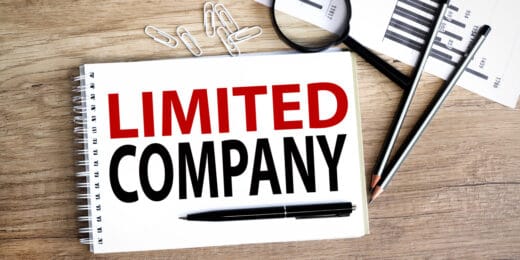Shortly after setting up a limited company, it is advisable to arrange a board meeting of the directors. The purpose of this meeting is to provide directors with an opportunity to discuss the formalities of the new business, consult the articles of association, and determine their respective duties and responsibilities.
Pursuant to section. 248 of the Companies Act 2006, you are legally required to document the proceedings of your first board meeting, and all subsequent company meetings, by taking minutes, even if you’re the only director of the company. The minutes are a written record of everything that is discussed and voted on, as well as the names of everyone in attendance.
Key Takeaways
- Document all board meeting proceedings to ensure clarity and resolve potential disputes in the future.
- Retain minutes for at least 10 years to comply with legal requirements and facilitate easy access for inspections.
- Appoint a chairperson and define director responsibilities during the first board meeting to establish effective governance.
What is discussed at the first board meeting of the directors?
Matters for discussion at the first board meeting may include:
- Confirming the objectives of the company
- Confirming the initial subscribers (members who set up the company)
- Issuing share certificates
- Appointing a chairperson of the board
- Confirming the initial officers
- Confirming the company’s accounting reference date (ARD) and statutory filing deadlines
- Setting up a business bank account
- Record-keeping and accounting requirements
- Appointing an auditor (if applicable)
- Determining each director’s duties and responsibilities
It is crucial to have an accurate record of everything that occurs at board meetings of the directors and general meetings of the members (shareholders/guarantors) in case any confusion or disagreements arise at a later date. The minutes are evidence of the entire proceedings, including the decisions that were made, who supported or opposed the proposed decisions, any queries or objections that were raised, those who attended the meeting, and any absentees who were eligible to attend.
What to include in minutes of the first board meeting
When taking minutes of meetings, the following details (where relevant) should be recorded:
- Time, date and location of the meeting
- Names of all directors or shareholders present
- Names of those unable to attend
- Names of all other persons present
- The name of the Chairperson
- Items on the agenda
- Details of all topics discussed and any issues that arise
- Details of any decisions made and the actions agreed upon
- Details of those in favour of, and those opposed to, each decision and action
- A note of any documents or information to be filed with Companies House
- The names of those responsible for filing documentation or information with Companies House, and the deadlines for doing so
- Information about follow-up meetings to be arranged, and/or matters requiring investigation or further discussion
Keeping and distributing minutes
Minutes can be produced and stored electronically, provided they can be reproduced into hard copy if and when required.
You must keep copies of all minutes for at least 10 years from the date of the meetings to which they relate. These minutes should be kept available for inspection at your registered office or SAIL address. Companies House must be notified of the location of these minutes.
You must also keep copies of any decisions made by the board, and resolutions passed at general meetings. Company directors (and secretaries) are legally responsible for reporting changes to Companies House and filing the relevant documentation, whether these take place at a board meeting or a general meeting.
Directors should be given a copy of the minutes of each board meeting, regardless of whether they were in attendance or not.
Rapid Formations services
Rapid Formations provides digital minutes of your first board meeting as part of our Basic Package. Alternatively, you can receive digital and printed minutes if you register your company using our Privacy Plus Package or All Inclusive Package. You will also have access to our free Online Admin Portal – this will allow you to view and update company details online, file Confirmation Statements and report changes to Companies House electronically.
Please note that the information provided in this article is for general informational purposes only and does not constitute legal, tax, or professional advice. While our aim is that the content is accurate and up to date, it should not be relied upon as a substitute for tailored advice from qualified professionals. We strongly recommend that you seek independent legal and tax advice specific to your circumstances before acting on any information contained in this article. We accept no responsibility or liability for any loss or damage that may result from your reliance on the information provided in this article. Use of the information contained in this article is entirely at your own risk.






Join The Discussion